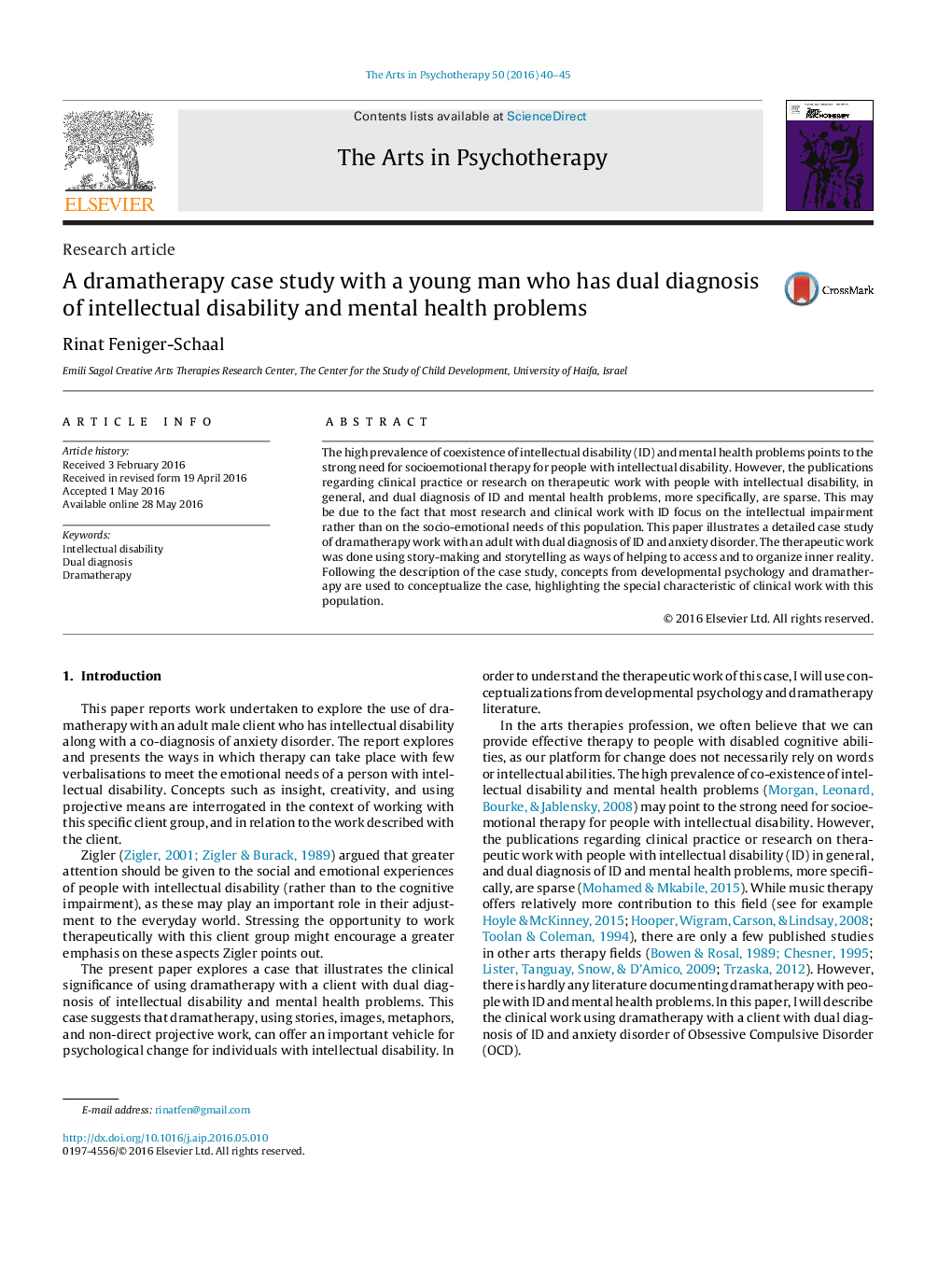| Article ID | Journal | Published Year | Pages | File Type |
|---|---|---|---|---|
| 343527 | The Arts in Psychotherapy | 2016 | 6 Pages |
•For people who have intellectual disability (ID), the high prevalence of coexisting mental health problems indicates socioemotional therapy may be of benefit.•A detailed case study of dramatherapy work with an adult having a dual diagnosis of ID and anxiety disorder is presented.•The therapeutic work was undertaken using the dramatherapy model of story-making and storytelling with the intent to help the client to access and to organize inner reality.•The non-direct, projective work of creating stories resulted in observed improvement in the emotional and social domains, as well as in general functioning.
The high prevalence of coexistence of intellectual disability (ID) and mental health problems points to the strong need for socioemotional therapy for people with intellectual disability. However, the publications regarding clinical practice or research on therapeutic work with people with intellectual disability, in general, and dual diagnosis of ID and mental health problems, more specifically, are sparse. This may be due to the fact that most research and clinical work with ID focus on the intellectual impairment rather than on the socio-emotional needs of this population. This paper illustrates a detailed case study of dramatherapy work with an adult with dual diagnosis of ID and anxiety disorder. The therapeutic work was done using story-making and storytelling as ways of helping to access and to organize inner reality. Following the description of the case study, concepts from developmental psychology and dramatherapy are used to conceptualize the case, highlighting the special characteristic of clinical work with this population.
